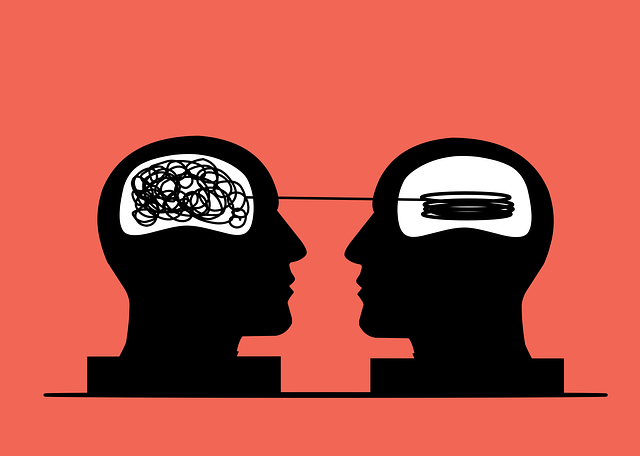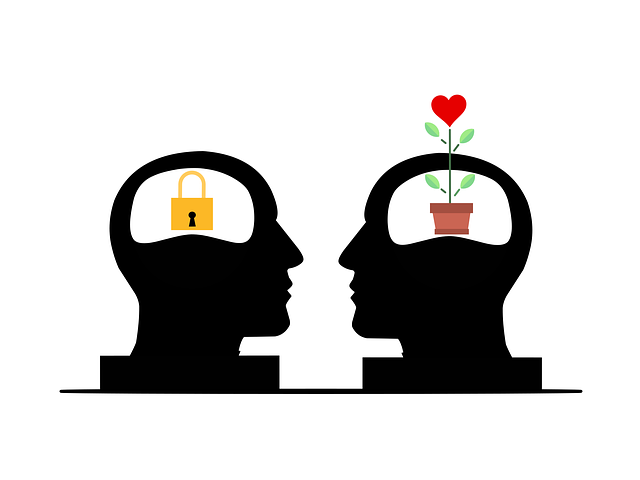Emotion regulation skills are vital for children's mental health, offering a proactive approach to prevent crises like suicide. Teaching techniques such as mindfulness, cognitive reframing, and emotional awareness exercises through training for healthcare providers and caregivers empowers kids to manage emotions, build resilience, and reduce risky behaviors. Recognizing non-verbal cues and creating safe spaces for dialogue foster healthy coping mechanisms. Mindfulness practices, in particular, combat stress and anxiety among youth, promoting emotional intelligence and compassion. Integrating these strategies into daily routines enhances self-awareness and mood management, reducing the risk of harmful behaviors and cultivating a brighter future for mental wellness, including therapy for children suicide prevention efforts.
Emotion regulation techniques are essential tools for teaching children to navigate their feelings healthily. This article explores the critical role of emotion regulation in children’s mental well-being, focusing on strategies that empower young minds to cope with emotional challenges. From identifying triggers to practicing mindfulness, we delve into proven methods that foster resilience and prevent issues like therapy for children and suicide prevention. Understanding these techniques is key to helping kids thrive emotionally.
- Understanding Emotion Regulation and Its Importance in Children's Mental Health
- Identifying Triggers: Recognizing Emotional Cues in Kids
- Techniques for Calming and Coping: Strategies to Empower Young Minds
- Teaching Mindfulness: A Foundation for Emotional Intelligence
- Building Resilience and Preventing Suicide: Long-term Benefits of Emotion Regulation Skills
Understanding Emotion Regulation and Its Importance in Children's Mental Health

Emotion regulation is a vital skill that plays a crucial role in children’s mental health and overall well-being. It involves understanding and managing one’s emotional responses, allowing individuals to adapt to challenging situations and maintain a sense of balance. For children, learning to regulate emotions is essential as it helps them navigate their feelings, make better decisions, and develop healthy relationships. When children can identify and express their emotions effectively, they are less likely to engage in risky behaviors like those associated with therapy for children suicide prevention.
Teaching emotion regulation skills can be a game-changer in promoting mental wellness coaching programs for kids. By incorporating strategies such as mindfulness, cognitive reframing, and emotional awareness exercises, healthcare provider cultural competency training becomes more effective. These techniques empower children to recognize triggers, develop coping mechanisms, and foster resilience. Moreover, risk assessment for mental health professionals can benefit from understanding emotion regulation, ensuring early intervention and improved outcomes in various mental health scenarios.
Identifying Triggers: Recognizing Emotional Cues in Kids

Children often struggle to express their emotions verbally, so it’s crucial for caregivers and educators to learn how to recognize emotional cues. This skill is a cornerstone in teaching emotion regulation techniques and can be life-saving when it comes to early intervention for mental health issues like suicide prevention. By observing non-verbal signals such as facial expressions, body language, and tone of voice, adults can identify when a child is experiencing distress or anger.
Identifying triggers starts with creating a safe space where kids feel comfortable discussing their feelings. Through open dialogue and activities focused on emotional intelligence, they learn to associate certain situations or people with specific emotions. This awareness is the first step towards developing healthy coping mechanisms and self-care routines for better mental health, as promoted in many Mental Health Education Programs Design.
Techniques for Calming and Coping: Strategies to Empower Young Minds

Teaching children effective emotion regulation techniques is a powerful tool to empower them in managing their emotional well-being and fostering resilience. Calming strategies such as deep breathing exercises, mindfulness practices, and sensory tools can help kids identify and process their emotions healthily. These methods are especially valuable for those at risk of mental health crises or who have experienced traumatic events, including suicide prevention efforts. For instance, a simple yet effective technique is the ‘5-4-3-2-1’ method, where children are encouraged to notice five things they can see, four things they can touch, three things they can hear, two things they can smell, and one thing they can taste, grounding them in the present moment.
Cultural sensitivity in mental healthcare practice plays a pivotal role here. Healthcare providers should incorporate competency training to understand diverse cultural perspectives on emotions and coping mechanisms. This ensures that self-care routine development for better mental health is tailored to each child’s unique background. By embracing cultural sensitivity, therapists can create inclusive environments, making emotion regulation techniques accessible and beneficial for all young minds.
Teaching Mindfulness: A Foundation for Emotional Intelligence

Teaching mindfulness to children is a powerful tool for fostering emotional intelligence and resilience. In today’s world, where stress and anxiety among youth are rising, equipping kids with mindfulness techniques can be a game-changer in their emotional healing processes. Mindfulness practices such as deep breathing exercises, meditation, and present-moment awareness help children develop inner strength and enhance their ability to navigate difficult emotions.
This approach has significant implications for therapy for children and even suicide prevention. By teaching mindfulness, educators and therapists can empower young individuals to cultivate compassion cultivation practices, enabling them to respond to challenging situations with more calmness and clarity. Such skills are not only beneficial for emotional well-being but also promote positive relationships and overall mental health, setting a foundation for a brighter future.
Building Resilience and Preventing Suicide: Long-term Benefits of Emotion Regulation Skills

Teaching children emotion regulation techniques isn’t just about helping them manage their feelings in the moment; it’s a powerful tool for building resilience and preventing potential crises like suicide down the line. By equipping young minds with the skills to identify, understand, and process their emotions effectively, we empower them to navigate life’s challenges with greater ease. This proactive approach to mental wellness encourages children to develop self-awareness exercises that foster healthier mood management practices.
In the context of therapy for children, these emotion regulation strategies can be integrated into daily routines, including journaling exercises that provide a safe space for expression and reflection. Such practices not only enhance overall mental wellness but also serve as protective factors against emotional distress. By learning to regulate their emotions constructively, children gain valuable guidance in responding to stressors, reducing the risk of engaging in harmful behaviors such as self-harm or suicide.
Emotion regulation techniques are powerful tools that can significantly enhance children’s mental health and well-being. By teaching kids to identify and manage their emotions effectively, we empower them to navigate life’s challenges with resilience. This comprehensive approach, incorporating mindfulness practices and suicide prevention strategies, not only calms the mind but also fosters emotional intelligence. Through understanding triggers and learning coping mechanisms, children can develop a stronger sense of self-control, leading to improved mental health outcomes and a brighter future.









